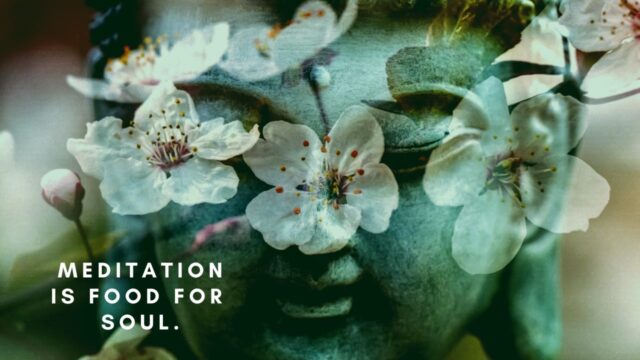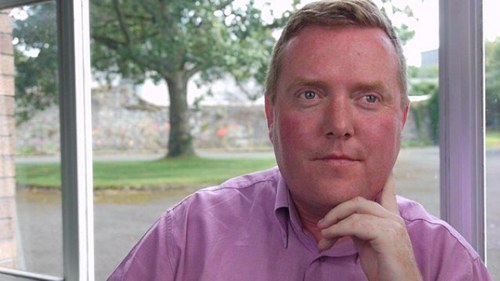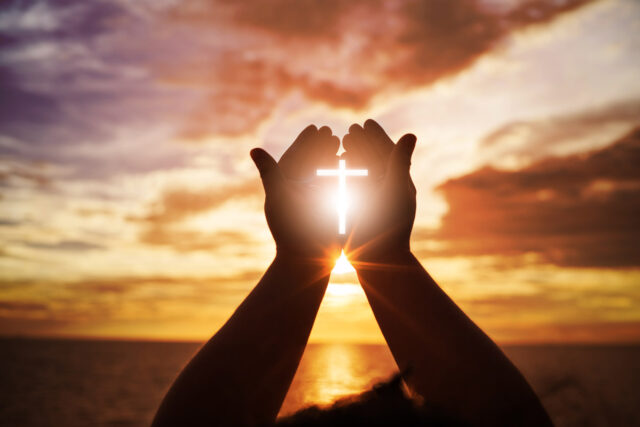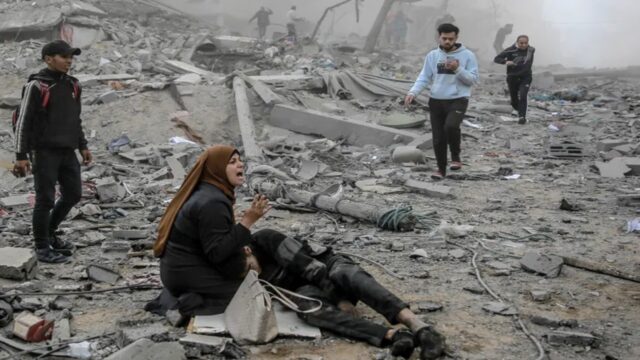It is not God, but our false images of God we need to challenge ourselves about.
God is not a puppeteer who is pulling the strings on everything that happens in our world.
God is three persons in one being. John’s Gospel tells us that God is love, three persons madly in love with each other, and that their love has been shared with us human beings.
Jesus prayed to the Father that ‘the love, with which you loved me, may be in them, so that I may be in them’ (Jn 17:26).
And that divine love has been given to us so that we can share it with others and so witness to the presence of God in our world today.
So where is God in the midst of war, violence and human suffering?
God is not the cause of such devastation, but God is the response to the challenges often by heroic resilient and courageous people.
God is present in the love, kindness and caring of people for those who have suffered. Jesus, after the Resurrection, sent the Holy Spirit to his disciples.
The Holy Spirit is now. Jesus, in his life, witnessed to the love of God by healing the sick, feeding the poor and eating with those who were rejected by his society.
Today, we, through the Holy Spirit acting in us, are called to witness to the love of God in the world.
“A Hundred Roads to Here”, is a wonderful read, by a Dominican priest, Donagh O’Shea.
The book, Donagh informs us in the introduction, was written in response to requests for brief inputs at the beginning of meditation sessions.
They are not, he insists, points to ponder during meditation or suggestions for further reflection. They are simply ‘doors to meditation’.
Meditation (or what is sometimes called ‘contemplation’), he says, is a simple matter, though few find it so. Probably because we don’t keep it simple by bringing so much baggage with us from our own experience of prayer and praying.

And this book is for dipping into as we find our way along the road to silence.
In an early key to meditation, Donagh writes: “Many years ago my cousin was so seriously ill – and for so long – that no one expected her to live.
“Her weight had dropped to an alarming 30 kilos, and she began to resemble a corpse. But every day her boyfriend came and sat by her hospital bed for hours. She lived, regaining her health very slowly.
“She left the hospital and was convalescent for almost a year. Every day he came to visit and sit with her. A few years later they were married.
“Fifty years later she died, aged 75. He had a headstone erected over her grave, and a limestone seat beside it. Every day, until he died aged 93, he came and sat by her grave.”
That reflection helps to situate if not explain key features of meditation.

As with “He came and sat’, there is little else to say. ‘A human relationship,” Donagh says. “That could not endure silence would be exceedingly shallow.”
It is the same – but more so – with our relationship with God. We won’t lose contact with God if we stop praying with words.
Meditation is about sitting in silence in God’s company. It’s about saying nothing, doing nothing, adding nothing.
It’s about waiting and listening for a rumour or even a whisper of God, that if it ever arrived would be regarded as ‘unexpected and undeserved’.
The spiritual writer, Sr Ruth Burrows, who has written more than a dozen books on prayer, including mystical prayer, admitted that despite a lifetime of meditation she never felt the presence of God – yet she never regretted the time spent in contemplation.

Here is a rough summary of what’s involved in meditation. You sit in silence ‘as if you were to sit forever’. You are alert to the busy-ness of your mind, and you try and leave your ego ‘outside the door with your shoes’.
You settle yourself by becoming aware of your breathing. You remind yourself that you are in the presence ‘of a God who will not desert you’.
Don’t use words – apart from a few simple one-word mantras to keep a focus on God: ‘Mercy’, ‘Jesus’, ‘Come Holy Spirit’. You are sitting with God and meditation is about the holy grail of patience.
Don’t force anything. Let things be. For God there is no past or future – just the present moment. And inside the act of contemplation, you are conscious only of God.
Recently I discovered a poem by Edwina Gateley, Let Your God Love You, which explains meditation in a simple prayer-poem:
Be silent / Be still / Alone / Empty / Before your God / Say nothing / Ask nothing / Be silent / Be still / Let your God look upon you / That is all / God knows / God understands / God loves you with an enormous love / God only wants to look upon you / With love / Quiet / Be still / Let your God love you.

Part of our difficulty is that for many, prayer was caught in a fear-trap. The God that Edwina Gately depicts (above, in Let Your God Love You) is the complete opposite.
God’s love is not something we have to earn or else! It’s a gift. It’s given to us to enjoy and all we have to do in prayer is to sit still, keep our egos from distracting us, and let our God love us.
So many kind and good and loving people have lived their lives with this burden of a false God-image weighing them down with guilt and with an infantile faith that is a caricature of a healthy life-enhancing friendship with a God who loves us beyond all expectation or imagining.
God’s love is not a bounty we have to earn, but a gift that’s offered to us that’s life-enhancing, liberating and often a sheer joy. In Edwina Gateley’s words, all we have to do is to be silent, be still, say nothing, ask nothing.
Just let your God love you.
SEE ALSO – Column: Walkover in senior hurling championship was inevitable given flawed format




















